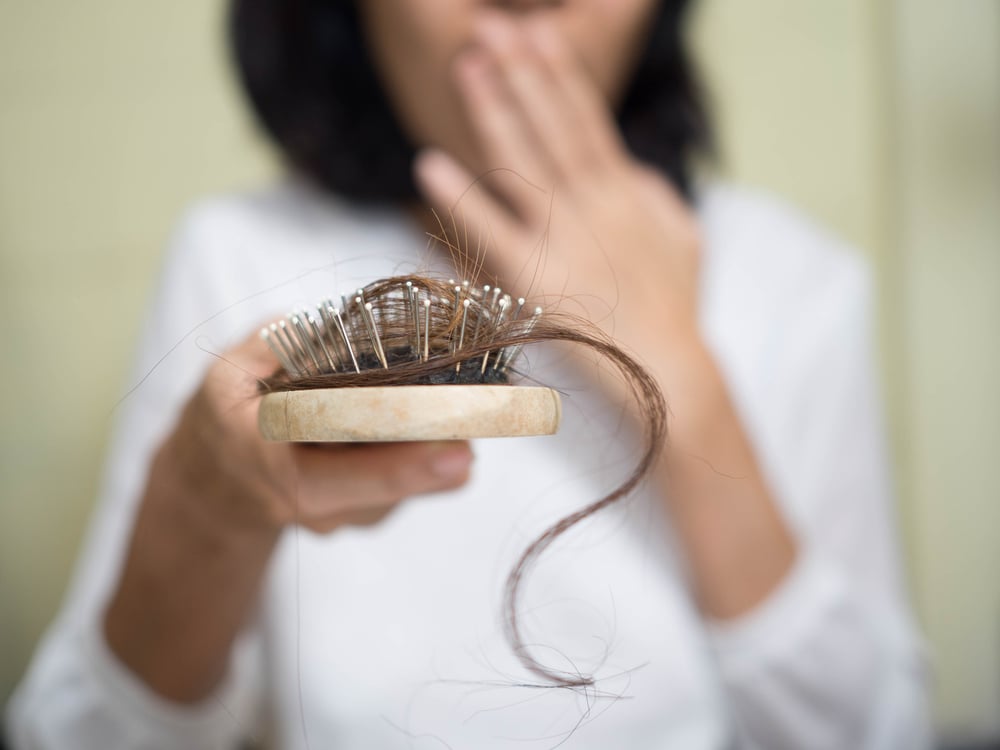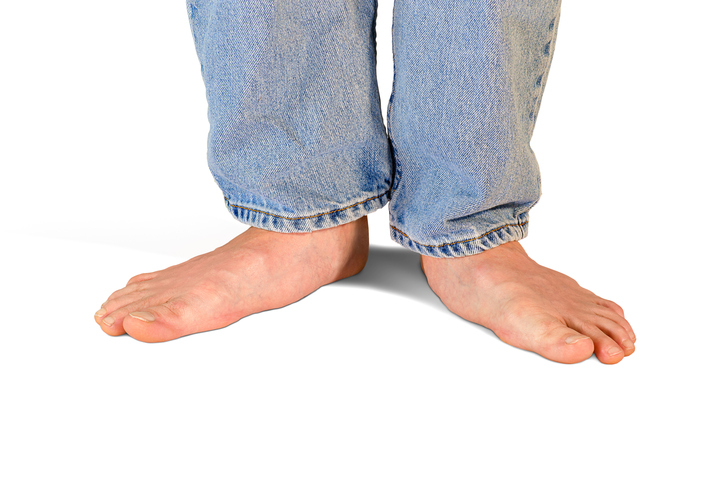Contents:
Medical Video: What'll Happen If You Stop Eating Junk Food for 7 Days
You might think that malnutrition only occurs in lower class people or tribes in the middle of nowhere. In fact, it is not impossible for residents of the metropolitan city to fail to meet the nutritional needs of the body. Even people who have a healthy diet may still lack the nutrients they need.
The most common features of classic malnutrition include head feeling yellow or 3L syndrome - tired, weak, lethargic. But there are a number of strange signs that you may experience but never realize that this is caused by your poor diet.
What are the characteristics of malnutrition that you should be aware of?
1. Dry scaly skin
Scaly dry skin is one of the common signs of aging, which also often encounters you during cold and dry weather. But if your skin feels drier than usual to itching and irritation, you may be malnourished from omega-3 fatty acids.
Omega-3 helps nourish skin lipid tissue - a layer of oil that repels harmful germs and poisons and keeps the skin's natural moisture inside. Without the intake of omega-3-rich foods, your skin loses moisture so it displays a dry and scaly texture. This may also be followed by the appearance of wrinkles and fine lines due to dehydration.
You can avoid this by multiplying eating foods high in omega-3, such as oily fish (tuna, salmon, mackerel, sardines, etc.), as well as walnuts and chia seeds.
2. Pale skin
White skin is the target of many people, but it's another story with dull pale skin that indicates you lack iron. Iron deficiency causes the size of red blood cells to shrink, less, and not be met by hemoglobin. As a result, the color of the skin becomes pale and dull, especially in the lining area of the eyelids and the inner wall of the cheek.
To be able to know more precisely whether you are really deficient in iron, you need to go through a doctor's test. But in the meantime you can meet your needs by consuming lentils, beef and iron fortification cereals.
3. Tingling
Almost everyone has experienced a tickling and piercing tingling sensation that comes suddenly in the hands or feet. We generally call it "tingling", because the sensation that is felt is like being covered by hundreds of ants under the skin. Tingling is usually caused by nerves that are pinched by heavy pressure, such as when we cross our legs or sit cross-legged for too long.
But this uncomfortable sensation can also result from a lack of intake of B vitamins, especially B6, folate, and B12. You can increase your intake of vitamin B complex by including whole wheat products, spinach, beans and eggs in your diet.
4. Lips dry and cracked
Occasionally rubbing lipbalm when the lips feel rough doesn't matter. But if the lips look very dry and cracked, it hurts, even cracks occur on both corners of the lips, this can indicate your body is deficient in vitamin B2 (riboflavin). A number of small portions of this vitamin that are in the body are usually enough for use in a few weeks, so symptoms of deficiency will begin to emerge once the reserves are very thinning.
Dry and cracked lips due to B2 deficiency will usually be accompanied by a swollen tongue and dark red color, as well as a swollen mouth. If left untreated, B2 deficiency can continue to get worse, sometimes causing nerve damage that triggers tingling in the fingers or toes. Add more riboflavin to your diet by adding almonds, salmon, broccoli, cheddar cheese, and eggs.
5. Spotty
Acne occurs when bacteria multiply in pores that are blocked by oil, dirt, and dead skin cells. But it turns out that malnutrition, especially omega-3s, can also make you easier to spotty and more difficult to remove. Omega-3 fatty acids have strong anti-inflammatory properties.
If the body lacks omega-3 intake, you may experience more inflammation, which can be acne. The role of omega-3 in protecting lipid tissue in the skin also plays a major role in preventing acne from getting worse.
5. Wounds that don't heal
Indeed, cuts from a knife or blisters from falling into a fall will not magically disappear overnight. But wounds that take a long time to heal can be a feature of malnutrition, especially lack of protein - essential nutrients to build and repair body tissues.
Keep in mind that animal protein products such as red meat can provide high nutritional and protein intake, but also contain saturated fats which can increase bad cholesterol. Choose sources of vegetable fats from nuts and seeds, white meat, eggs, avocados, to milk and greek yogurt.
You also need to multiply eating fruits and vegetables high in vitamin C because low levels of these nutrients can slow healing (and, in severe cases, even reopen old wounds). Guava, papaya, strawberries, pineapple and mango are some of the best sources of vitamin C besides citrus fruits.
6. Brittle nails
When your body starts to run out of iron and / or complex vitamins, especially B7 (biotin) and B2 (riboflavin), this can cause your nails to become brittle and change color.
Biotin functions to maintain nail growth, so that if this vitamin intake is not fulfilled, your nails will grow irregularly - some are fast, some are short. Lack of biotin also increases your risk of having a fungal infection that can cause your nails to change color and the edges grow unevenly. Meanwhile, iron deficiency can cause nails to grow outward like the surface of a spoon. Lack of vitamin B2 can change the skin color to brown.
7. Thinning hair
Hair loss is natural. In general, hair can fall up to 50-100 strands per day. But excessive thinning can be a sign that your body is not adequately nourished. Vitamin C deficiency and protein can cause thinning, brittle hair that is easily broken / branched, and / or easily fall out. That's because both of these vitamins help you make collagen - one of the important nutrients to maintain healthy and strong hair growth.
Biotin may also play a role in maintaining healthy hair. A new study found that nearly four out of 10 women who reported suffering from hair loss experienced a lack of biotin.
8. Frequent muscle cramps
If you continue to experience muscle stiffness or muscle cramps, even when you are actively moving, maybe this could be a sign that your body is deficient in magnesium - one of the minerals that helps regulate bodily functions. Other symptoms of poor magnesium intake can also include facial twitching, lack of sleep, and chronic pain.
Magnesium deficiency can occur if you consume too much soft drinks, high-sugar snacks, and caffeinated drinks such as tea and coffee. Most dark sodas contain phosphate. This substance binds with magnesium in the digestive tract, making it unavailable to the body for processing. Meanwhile, sugar and caffeine causes the kidneys to waste a lot of magnesium through urine. Enrich your magnesium reserves by eating lots of bananas, almonds and green leafy vegetables.
9. The desire to chew ice cubes
Suddenly cravings to chew ice cubes can be one of the strange symptoms displayed by the body to commemorate the owner of the body that the diet is bad. Chewing ice cubes can be a sign that you are deficient in iron, even though health experts do not know for sure why. One theory is that the fresh and cold sensation given by ice cubes provides a large surge of energy to combat fatigue due to minimal iron intake in the body.
Chewing ice cubes can damage teeth and cause interference in the joints of the mouth and jaw. So, instead of chewing on ice cubes and risking your beautiful smile, it's better to enrich your iron intake by chewing red meat, nuts, lentils, and iron fortification cereals.












